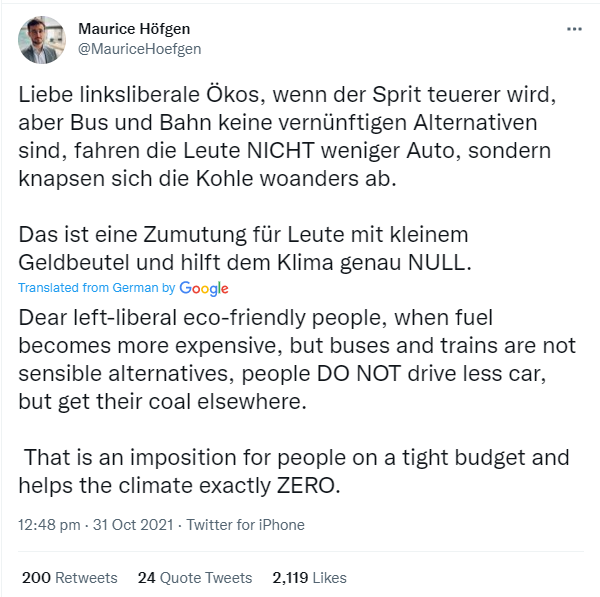
I was thinking the whole #Pendlerpauschale debate is such a great illustration of lock-in.
You incentivize carbon-intensive lifestyles for years, so that people move further away from jobs than they would otherwise have done.
So eventually you want to stop that but...
You incentivize carbon-intensive lifestyles for years, so that people move further away from jobs than they would otherwise have done.
So eventually you want to stop that but...
...that is perceived as a "declaration of war" on certain lifestyles that people have little leeway to change over the short term.
And the idea that the State will pay half of your fuel costs has become common sense, people feel entitled to it.
And the idea that the State will pay half of your fuel costs has become common sense, people feel entitled to it.
https://twitter.com/giulio_mattioli/status/1453978435957764111
...and this regardless of whether the current situation is socially 'fair' (it's not ⬇️) or whether it even makes sense from an economics perspective (economists are divided but many think it doesn't). Those arguments won't cut much ice I'm afraid.
https://twitter.com/giulio_mattioli/status/1453978855631466497
So I guess the lesson easy: avoid at all costs introducing those incentives to carbon-intensive lifestyles. Once society adapts around them, it will be nearly impossible to roll them back.
• • •
Missing some Tweet in this thread? You can try to
force a refresh








